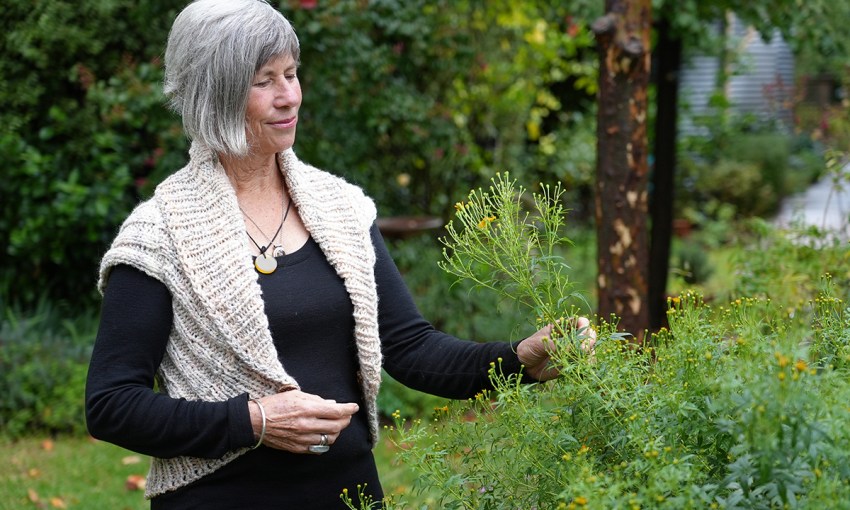Easy to grow and worthy of space in any garden, herbs have helped shape our culinary and wellness paths over millennia.
The power of herbs
Depicted in cave paintings dating back tens of thousands of years, herbs have been pivotal to civilisations throughout the ages. Traces of yarrow and chamomile found on Neanderthal teeth show even ancient humans enjoyed flavoursome foraging.
The ancient Greeks and Romans were confirmed herb-lovers. Herbal-based potions, ointments and tinctures treated ailments from wounds and fevers to headaches and a myriad more. The famous Greek physician, Hippocrates – widely considered the “Father of Western Medicine” – was among the many healers who reached out to nature for remedies.
A holistic approach to health that is still practised today, traditional Chinese medicine relies on herbs to balance the yin and yang by stimulating the body’s own healing mechanisms. First Nations across the globe, including Indigenous Australians, also have a rich history and broad knowledge of locally sourced plant-based medicines.
Though Western medical practices dominate the health journeys of most people in Australia, there are practitioners who still offer a herb wellness alternative.
Westbourne Park-based Sue Lohmeyer has been a herbalist for more than 20 years and is passionate about providing nature-based healing pathways.
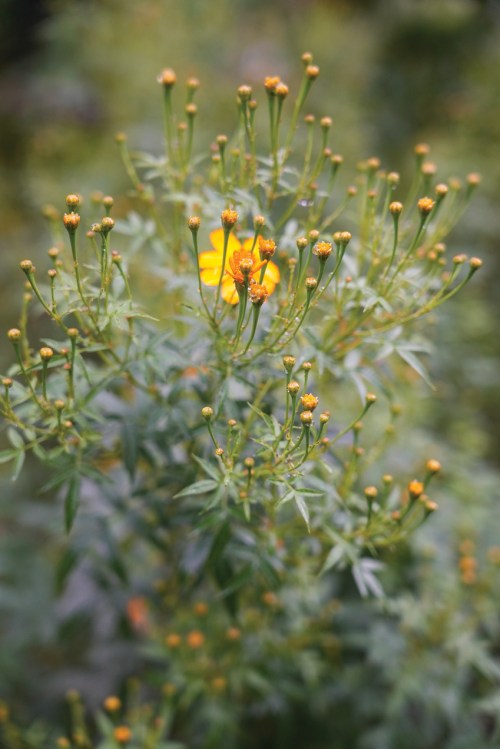
While enjoying a stellar state hockey career, a bout of shin splints caused a shift in Sue’s thinking towards body and mind care to help her successfully rehabilitate.
Motherhood then accelerated a yearning to study something within the nutrition space. A chance conversation led Sue to enrol in a remote learning course run by the herbalist Dorothy Hall, an acclaimed author and teacher. Listening to cassettes, writing essays and juggling three boys was a challenge. Practising what she preached, Sue describeds herself as the “weird mum, who didn’t let her children eat sugar”. She still apologises for the lentil dinners, but notes her boys still love her.
Sue now runs her business Herbal Medicine Adelaide and is still involved in hockey, coaching in the high-performance junior program.
Her first aid kit is a little unconventional. Taking a tumble on artificial turf can lead to nasty grazes and rather than heading to the usual kit, injured players flock to Sue for a calendula salve applied to the wound that’s dressed, then back on the field. Players are amazed at how effectively the dirt and sand grains are drawn out and the scrape heals. This first aid kit is also open to opposition players too!
Hippocrates often said, “Let food be thy medicine, and medicine be thy food” and this sits well with Sue who sees herbs as concentrated nutrition, packed with vitamins and minerals that are absorbed by the body easily, as nature intended.
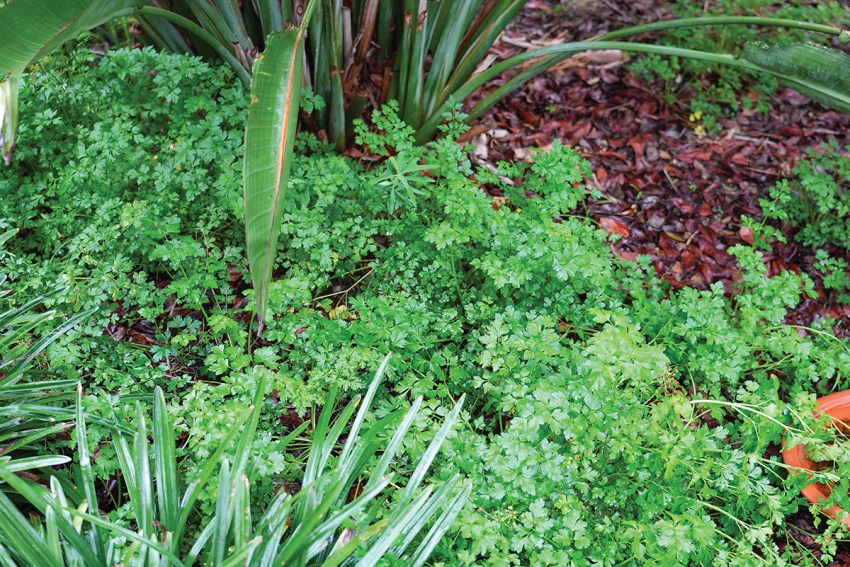
Drawing on a Western-based herb portfolio with Chinese and Ayurvedic (from India) influence, Sue has a gamut of botanicals to call upon when treating clients’ needs. Some look for alternatives to hormonal treatments, others help for sleeplessness or to de-stress. As a herbalist, Sue looks beyond a client’s ailment, trying to ascertain the root source of the problem and work towards homeostasis – a state of balance and correct connection of all the body systems.
Always happy to get dirt under her fingernails, Sue’s home garden proves that she is a herb lover. Everywhere you look, herbs abound: filling and spilling out of garden beds and pots, nestled in nooks and flourishing under trees.
She is quick to point out that not everything here is a conventional herb. Plants such as the dandelion, though classified as a weed, have important herbal uses. Sue says the dandelion root is included in remedies to improve liver, gallbladder and kidney function, while the bitter tasting leaves are a perfect salad additive and gut health booster.
Some of Sue’s go-to herbs include:
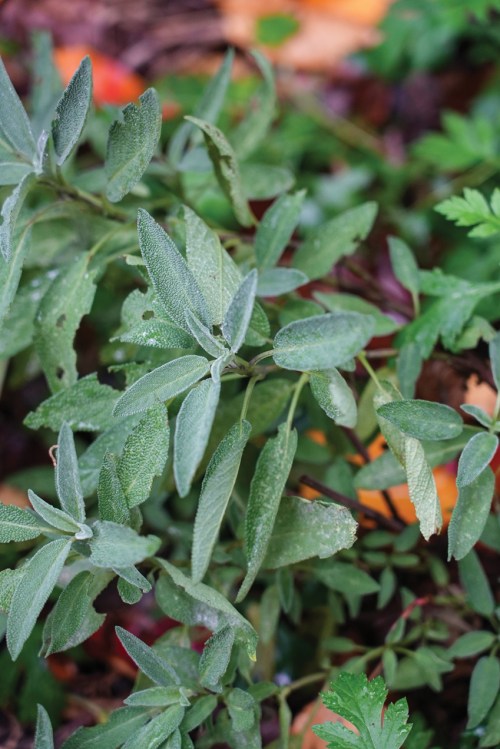
Chamomile – a member of the Asteraceae or daisy family, Roman chamomile, is a perennial groundcover that can be used as a lawn substitute. Annual German chamomile self-seeds and springs up once established. Pick and dry the flower heads after blooming has finished. Chamomile has been used for centuries to help treat digestive complaints.
Elderberry – needs to be cooked, dried or processed before consuming, but once done, the small black berries that form in clusters on the European or Black elder tree have a tart flavour. A traditional natural remedy for colds and flus over eons.
Fennel – equally at home in the veggie garden or alongside country roads, the ferny tufted leaves carry a strong anise scent and flavour. If you love liquorice, fennel is for you; plus, it is perfect for taking the wind out of flatulence.
Lemon balm – a member of the mint family, once planted it goes and goes. Crushed and rubbed, its lemon scent is pleasant and calming, while added to teas and other infusions has seen it used to promote sleep and reduce stress since the Middle Ages.
Lemon verbena – a true delight, this exceptional perennial has many strings to its bow. The mauve/white flowers are a pollinator beacon drawing bees and other insects into the garden. Noted for its intense citrus scent and flavour, it’s little wonder lemon verbena is a welcome addition to so many sweet and savoury dishes. Another herb that can be picked fresh and infused into a remarkably calming tea.
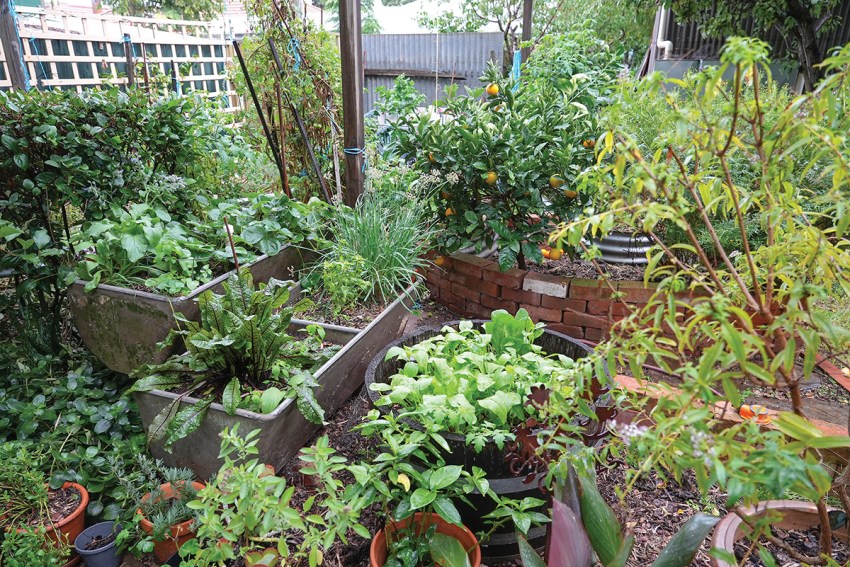
Nettle – normally a weed to be avoided because its sharp silica barbs break off when brushed past causing skin irritation, nettles are also a wonderful source of iron and through winter and spring make a wonderful soup or spinach substitute in spanakopita.
Parsley – another iron champion, it is also packed with vitamin C, as well as being a good source of folate, potassium and zinc, along with vitamins A, B, and K. No wonder tabouli is so good. Plant a punnet of parsley and harvest handfuls.
Peppermint – a native of Europe and North America, this cross between spearmint and watermint is a herbal favourite. Both leaves and stems contain volatile oils high in menthol that provides a cool and soothing sensation often included in cold and flu remedies. Romans would consume peppermint after meals to aid digestion.
Sage – a perennial plant with distinctive grey downy leaves, this is easy to grow and a few leaves in boiling water makes a wonderful brain-stimulating tea.
Thyme – a Mediterranean-flavouring favourite, this trusty and much-used kitchen herb has some medicinal qualities. Thymol, its essential oil, has been used as a disinfectant and an antiseptic for centuries. Victorian era nurses often bandaged wounds with a thyme solution. Thyme tea has also been used to take the tickle out of a scratchy throat.
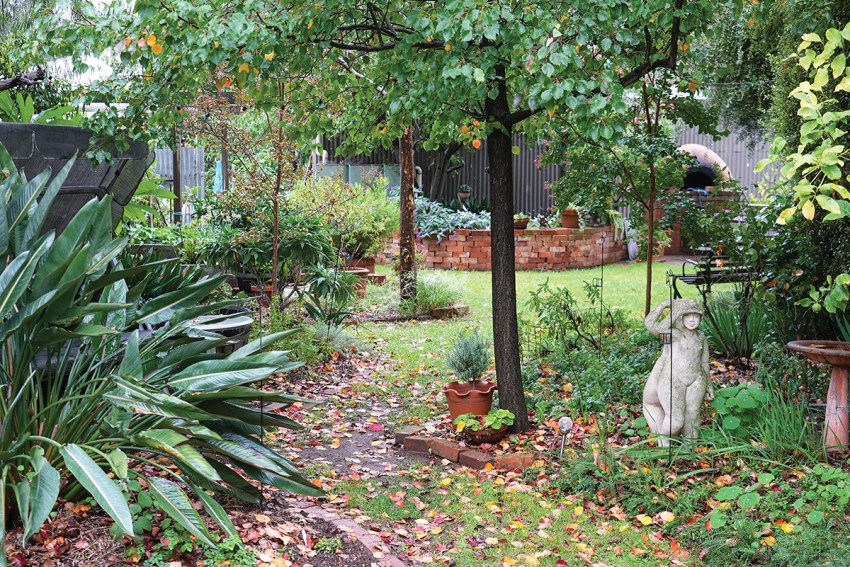
Yarrow – a herbaceous flowering perennial which produces small white or pink umbel blooms, dependent on the cultivar. Low growing, it spreads through rhizomes, popping up new plants around the garden. Named after Achilles, the Greek mythological hero, Yarrow (Achillea millefolium) leaves were used in battle as an anti-coagulant to stem bleeding in soldiers’ wounds. Yarrow was much valued by earlier Eastern European households to improve digestion.
Let herbs into your life. Select a few favourites and try some new ones, there’s plenty of choice. They are so easy to grow, you can either spread seed or plant out a punnet and you will be adding a fresh flavour boost to your cooking, while potentially providing a platform to expand your health potential using time-honed herbal traditions.
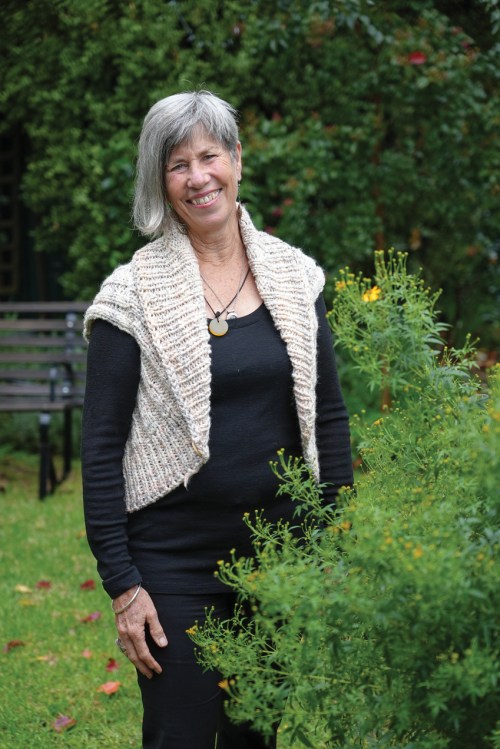
This article first appeared in the July 2023 issue of SALIFE magazine.



